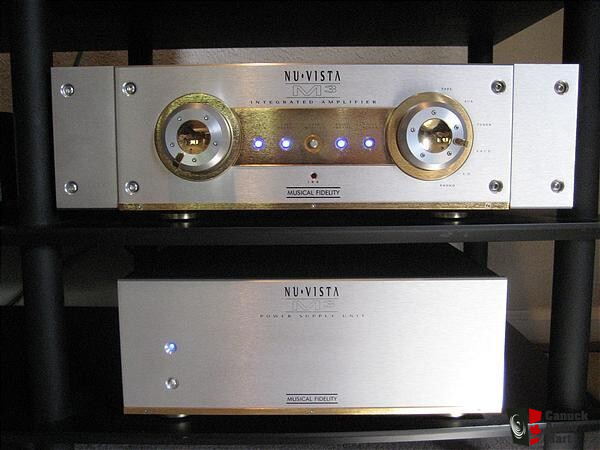SoCal Sam
Lunatic Member
While reading the article, this one was linked and proved a great read.....it explains the difference between subjectivists and objectivists and what they think about audio.
http://nwavguy.blogspot.com/2011/05/subjective-vs-objective-debate.html
THE SUBJECTIVISTS: The hardcore Subjectivists trust their own ears above all else and often ignore, downplay, or sometimes even actively discredit objective efforts. Some argue they have superior hearing and/or listening skills and more refined tastes. That sometimes creates at least a whiff of an elitist “club” that some are drawn to (think Robb Report). But, regardless, their genuine passion for audio is to be admired. And I believe at least some of them do have superior listening skills compared to the Average Joe. Despite their more emotional left brains, which might imply a greater love of music, there’s some consensus Subjectivists spend more of their time tweaking and evaluating their hardware than a typical objectivist. Stereophile’s Michael Fremer is generally considered a strong subjectivist.
THE OBJECTIVISTS: This group tends to prefer some sort of science, measurements, or objective listening tests to back up claims of “A is better than B”. When reading a gear review they’re more likely to skip to the measurements section (if there is one) than read subjective impressions. They tend to be skeptical of outrageous claims and ultra high priced gear. They also tend to buy less expensive gear, less often, than subjectivists making them less attractive to manufactures. As mentioned above, they tend to be more satisfied with their systems so the spend more time just listening to music rather than the gear. Some have speculated this is because they’re confident more of their hardware is already “good enough.” Peter Aczel and the late Julian Hirsch are classic audio objectivists. And a lot of the folks at Hydrogenaudio fall in this category.
THE MODERATES: Just as with politics and religion, it’s not black and white. Some have a foot firmly in both the objective and subjective side of things. Some examples are John Atkinson at Stereophile, John Siau at Benchmark Media, and to some degree, myself. We value objective measurements but also trust our ears and just because we may not hear a difference we accept someone else might. I believe those in the middle are generally the most open minded.
There is a lot more in the article.....very enjoyable no matter what side one comes down on.
ACCOUNTABILITY: The subjective reviewers have it easy. If someone doesn’t agree with one of their reviews, excuses are plentiful. When subjective reviewers are questioned, I have seriously seen or heard variations of all of these responses:
- While you might not like it I preferred the slightly more recessed presentation of the UberDAC Black Edition
- The UberDAC is a better match with my ultra expensive reference system than your more modest gear
- Did you use the UberLink Reverse Twisted Unobtanium cables I recommended for the UberDAC?
- I was in a noisy restaurant for lunch immediately before reviewing the UberDAC and my ears hadn’t fully recovered
- I didn’t know it at the time, but it turns out I was in the early stages of a head cold when I reviewed the UberDAC
- I had too much wine the night before (my personal favorite)
Somebody pin the above quote.
Subjective preference can only be defined by oneself through one's own senses. No one can experience what the other person is experiencing so whatever they say cannot be relied upon as the absolute truth. This is the existential theory that defines our own individual existence but curiously does not confirm the existence of others. The very common mistake made in this arena is that subjectivists tend to apply their own preference to all others and forget to add the provision "to me".
Objective results are repeatable in the lab and some important insights into the design can be gained. If the goal of the objectivist is to find the most signal accurate amp, then inexpensive gear such as pro amps achieve the goal. However, many find signal accurate amps to sound objectionable (pun intended).
Moderates are able to correlate objective results with what they are hearing and use lab results to enhance their listening experience. Agreed.
Unfortunately, the above brief does not offer any insights into what is an audiophile. I'll offer this for starters. An audiophile has a subjective sound preference that has been validated through comparison audition of a wide range of gear. This definition is inclusive of all hearing conditions and allows for any gear choice to be made. In short, anyone of any class can be an audiophile.
Last edited:


